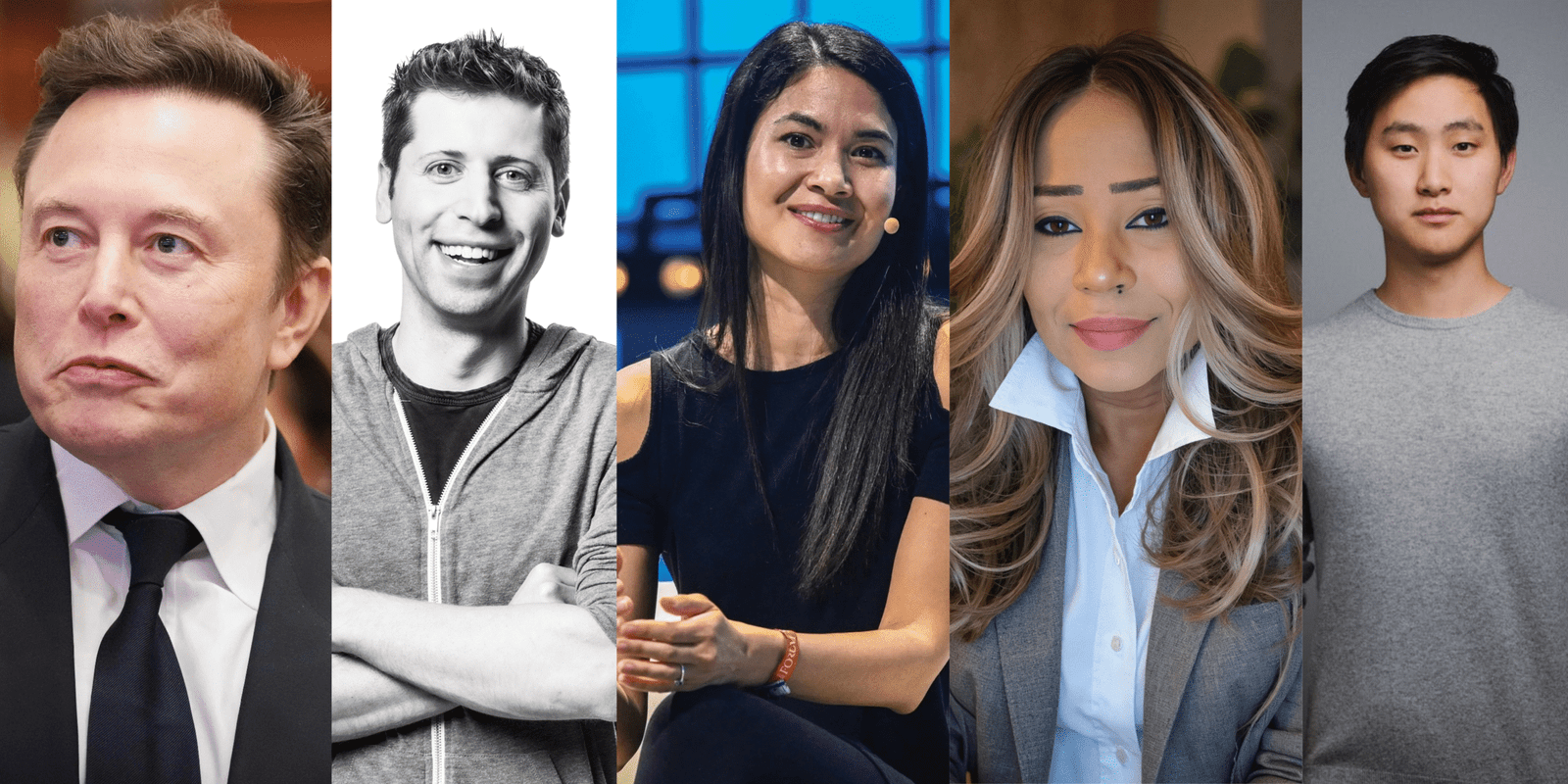In every generation, there are builders—not just of companies, but of new realities. Founders who don’t just ride the wave of innovation but architect the wave itself. They look ahead while the rest of the world is stuck in now. They make what’s coming next feel inevitable.
As the world steps into an era of AI, data sovereignty, and decentralization, here are five founders shaping the next decade.
1. Elon Musk – Rewiring Transportation, Energy, and the Human Brain
Whether it’s electric vehicles (Tesla), commercial space travel (SpaceX), or Neuralink’s attempt to merge brain and machine, Elon Musk is a force of disruption. He doesn’t build products; he redefines categories. With a mission to make humans a multiplanetary species and combat climate change, his reach extends from the Earth’s core to Mars. While critics question his methods, no one doubts the magnitude of his ambition—or his impact.
Why it matters: In a world increasingly shaped by climate instability and AI dominance, Musk’s moonshot projects aren’t science fiction—they’re policy-driving, investment-moving realities.
2. Sam Altman – Architect of the AI Age
As CEO of OpenAI, Sam Altman is the mind behind ChatGPT and one of the key figures making artificial intelligence accessible—and controversial. He’s not just releasing tools; he’s shaping a global debate about ethics, creativity, labor, and even the soul of intelligence itself. His work has already redefined how businesses operate and how humans interact with machines.
What to watch: Altman’s recent push for universal basic compute—like UBI, but for AI resources—signals that he’s thinking way beyond software. He’s imagining economic systems rebuilt around intelligent infrastructure.
3. Melanie Perkins – Making Design Democratic
As co-founder and CEO of Canva, Melanie Perkins did something quietly revolutionary: she made design as easy as typing an email. By flattening the barrier to entry for visual communication, she didn’t just launch a startup—she unlocked a new economy of freelancers, small business owners, and creators who previously couldn’t afford to participate.
Her impact: Canva now reaches over 150 million monthly users, and in many classrooms, it’s taught alongside Microsoft Word. Perkins didn’t just democratize design; she taught the world that you don’t have to be a designer to create beauty.
4. Preska Thomas – Monetizing Your Digital Self
Imagine if someone had told you, back in 2009, that Bitcoin would reach $100K plus. You’d be rich today. That moment of missed opportunity is what fuels Preska Thomas, the visionary founder of DebitMyData™, a platform that finally lets users earn from their own internet data.
In a world where big tech profits off surveillance capitalism, Thomas is flipping the script. She built a system where the user controls their data—and gets paid for it. But her brilliance lies not only in the tech—but in the simplicity. While others build systems that intimidate, Preska designs tools that empower. She’s turning “data” into digital equity, and placing power back into the hands of everyday people.
Why she’s the one to watch: As inflation eats into savings and digital footprints grow, Thomas is building what economists call an “attention economy.” But instead of users being the product—they become the shareholders. This isn’t just innovation. It’s economic justice, reimagined.
5. Alexandr Wang – AI Meets Defense
At just 25, Alexandr Wang became the youngest self-made billionaire by founding Scale AI, the infrastructure powering data for military systems, autonomous vehicles, and AI tools. While his company doesn’t have the household recognition of OpenAI, its fingerprints are all over the modern intelligence landscape—from national defense to enterprise automation.
Why this matters now: As governments scramble to compete in the AI arms race, Wang’s work bridges Silicon Valley and national security. His vision isn’t just commercial—it’s geopolitical.
The Big Picture: Tech Founders as Architects of Reality
Tech is no longer a siloed industry—it’s the bloodstream of every modern system. From how we communicate and move to how we govern, earn, learn, and even love—technology now sits at the center of human experience. But it doesn’t evolve on its own. Behind the scenes, it’s shaped by a handful of individuals who dare to imagine differently. They don’t just build tools; they rewrite the rules of society.
These tech founders are not merely running businesses. They are designing frameworks for the future—economic, ethical, social, and cultural. Whether you agree with their methods or not, one thing is clear: ignoring them isn’t neutral—it’s choosing to be uninformed.
Take artificial intelligence. It moved from lab theory to global workplace disruption in less than 24 months. Or data privacy—once an afterthought, now a top-line global issue. Digital identity, the value of attention, blockchain-based governance, immersive realities—these aren’t fringe tech topics anymore. They are public concerns, market movers, and election issues.
The people leading these changes don’t just launch products; they change vocabularies. What wasn’t even a concept five years ago becomes a household phrase today—“metaverse,” “generative AI,” “digital twin,” “tokenized assets,” “sovereign identity.” What happens in one founder’s mind can become the norm for millions of people in record time.
That’s why understanding who’s behind the tech—and where they’re pointing—is essential. Because they’re not only forecasting the future. They’re building it.
Being engaged in this conversation isn’t about chasing trends—it’s about safeguarding relevance. It’s about equipping yourself, your business, your family, and even your community to thrive in a landscape that shifts by the quarter.
In short: technology isn’t just shaping the future. It’s quietly replacing the present. Those who pay attention early will adapt and lead. Those who don’t might find themselves trying to catch up in a world they no longer recognize.
History has taught us this repeatedly. The internet, e-commerce, social media, cryptocurrency, remote work—every revolution felt “early” until it became obvious. And by then, most people had already missed the opportunity to shape their stake in it.
So the real question isn’t “What’s next?”
It’s “Who’s building what’s next—and are we ready to participate?”

